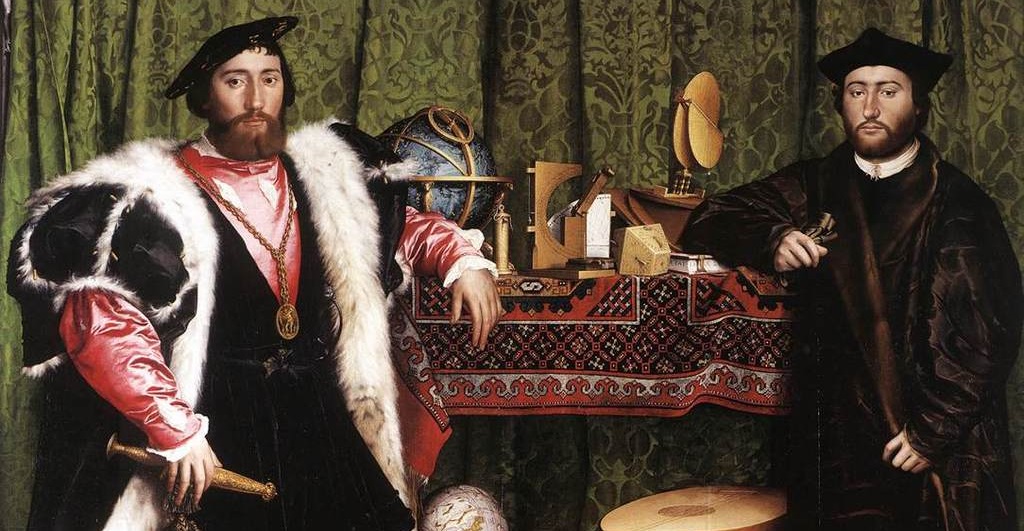- Posted on : June 27, 2014
- Posted by : Tom Fletcher
In ‘Guerilla Diplomacy’, Daryl Copeland writes that modern diplomats need accessibility, flexibility, improvisation, cultural awareness, and a catalytic and transformational orientation.
I agree: most posts on this blog are about how diplomacy is changing, and the skills that future diplomats will need. I’ve argued that we need to dump the diplomatic baggage – jargon, unnecessary protocol, pomposity – that gets in the way of our ability to engage and influence.
But we shouldn’t throw the diplomatic baby out with the digital bathwater. This trade has been around a long time, and many of the skills honed over centuries remain vital.
So what are those qualities? I’ve been digging through the archives.
Most of us can’t compete with Ottaviano Maggi’s description of the ideal diplomat in the era of the Italian city states: “trained theologian, familiar with Greek philosophers, expert in mathematical sciences, competent in law, music and poetry, proficient in Greek, Latin, French, German, Spanish and Turkish, of aristocratic birth, rich and handsome”. Nor, thankfully, does diplomacy rely nowadays on what former ambassador Oliver Miles described as “good horsemanship, good looks and a good head for alcohol”.
Some skills are more timeless. Lord Gore-Booth, Head of the British Diplomatic Service, said in 1974 that the ideal ambassador “must be able to contrive anything, eat or drink anything and appear to like it, and be surprised by nothing. And all this must be done without loss of sensitivity or courage”. Harold Nicolson wrote after the Second World War that the “key qualities of the diplomat are truthfulness, precision, calmness and modesty”. Most of the best diplomats I’ve encountered master three of the four. Nicolson also warned diplomats against becoming “denationalized, internationalized, and therefore dehydrated, an elegant, empty husk”. Indeed.
Christopher Meyer, former British ambassador in Washington, sees “insatiable curiosity” as essential. “You need a quick mind, a hard head, a strong stomach, a warm smile and a cold eye”. Having eaten, on behalf of my country, a local delicacy best described as bull gland sushi, I can testify both to the continued importance of a strong stomach and to the limits of curiosity.
Tact is mentioned repeatedly in the diplomatic handbooks of the past. It was always said that a diplomat should think twice before saying nothing. Or as Isaac Newton put it, “tact is the knack of making a point without making an enemy”. As ever, Churchill was tweetable: “Diplomacy is the art of telling people to go to hell in such a way that they ask for directions”.
On honesty, the experts are more divided. 19th century Italian statesman Count Cavour saw a lack of morality as central to statecraft: “if we did for ourselves what we do for our country, what rogues we should be”. Austrian master diplomat Metternich was famously devious. On hearing of the death of a diplomatic rival he commented, “now I wonder what he meant by that”. Charlie Hill argues that the most successful diplomats are those prepared to break the rules. He describes Richelieu, Talleyrand, Cromwell as amoral characters. Odysseus changes the messages he carries between Agamemnon and Achilles, and Wallenstein fixes the Treaty of Westphalia by manipulating the facts against his own side.
So was Sir Henry Wotton, a late sixteenth-century English diplomat, right in his joking description of an ambassador as “an honest man sent to lie abroad for his country”? No. The history books are full of examples of where devious diplomacy has come undone. Perhaps the best diplomats do indeed understand when to say nothing. But former British ambassador Leslie Fielding concludes that “plain dealing is best. Deviousness always backfires. Charm not coercion; good manners, not ill; persuasion not deception”. Oliver Miles says that “scrupulous regard for truth, not a quality always associated with diplomats, is the key quality”. A former French ambassador in Washington, Herve Alphand, judged that “a diplomat is a person who can tell the truth to anyone in the government to which he is accredited without offending him, and to anyone in his own government at the risk of offending him”. British Foreign Secretary Palmerston thought frankness with his envoys was best: “I tell ambassadors the truth, because I know they won’t believe it”.
The diplomatic skillset must become even more eclectic as we compete in the digital age. But the archives also suggest that we should be teaching future diplomats curiosity, tact, courage, plain dealing, and an ability to eat anything.

